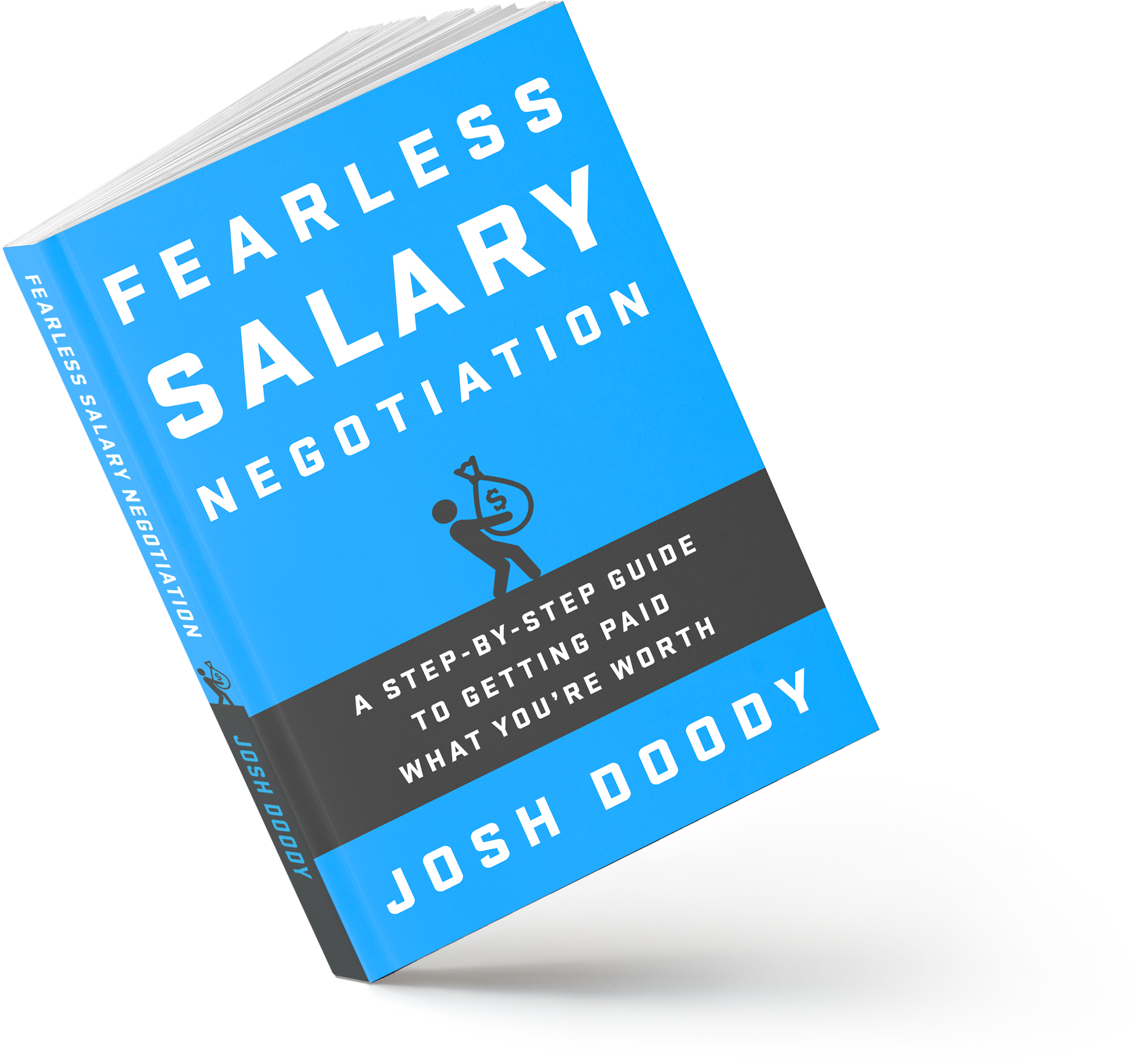
What are promotions and raises?
How salary structure affects promotions and raises
Simple examples to illustrate a promotion, a raise, and a promotion with a raise.

Simple examples to illustrate a promotion, a raise, and a promotion with a raise.
Promotions happen when you move up to the next job in your career path, and it usually represents a jump to a higher pay grade as well. In our example above, this means stepping up to the next pay grade. If you look closely at the example, you’ll see that many of the pay grades overlap, which implies that you can be promoted without getting a raise. For example, a Jr. Developer making $75,000 could theoretically be promoted to Developer without a pay increase by moving from the higher end of the “E01” pay grade to the lower end of the “E02” pay grade.
This usually doesn’t happen, but that’s how it could happen.
Raises are when you move to a higher salary. This may mean just moving “up” (to the right, toward the top of the pay grade) in your current pay grade, or it could mean moving into a higher pay grade and moving “up” within that new pay grade.
Counterintuitively, being lower in your pay grade is better for your prospects of getting a raise while staying in that pay grade. The higher you are in your pay grade, the less room there is before you bump into the “top” of the pay grade, and that’s often a hard limit. Even if a big raise wouldn’t bump you into the top of your pay grade, it can still be difficult to get into that top part because the tippy-top of a pay grade is often reserved for people who have been in that pay grade for a long time, and either aren’t being promoted or don’t want to be promoted.
Here’s an example to show what I mean.
Let’s say you’re a software developer and you are hoping for a $10k raise. How easy it will be to get that raise depends very heavily on where you are in your current pay grade. If you’re a Jr. Developer making exactly $60k, then a $10k raise would move you to your pay grade’s midpoint. That isn’t a difficult move because you still have a lot of room to move up in your pay grade without bumping into the upper limit, even after your raise.
On the other hand, let’s say you’re a Developer and you are hoping for a $10k raise, but you’re already at $85k. It’s going to be very difficult for you to get that raise because it moves you above the top of your pay grade. The closer to the top of your pay grade you are, the harder it is to increase your salary while remaining in the pay grade.
So, what can you do?
The best thing is to try to get promoted so you move into a higher pay grade with room to breathe at the top. The Junior Developer can make a good case for a $10k raise based on job performance, and will have a good chance of getting that raise without needing a promotion. The Developer’s best bet is to pursue a promotion to Senior Developer while pushing for that $10k raise. $95k will still be near the top of the Senior Developer pay grade, but it won’t be above the top of that pay grade, so it’s more feasible.

I'm Josh Doody, a professional salary negotiation coach who helps High Earners negotiate their job offers. On average, High Earners improve their first-year compensation by $47,273 with my help.
Apply for a free 15-minute intro call to learn how I can help.